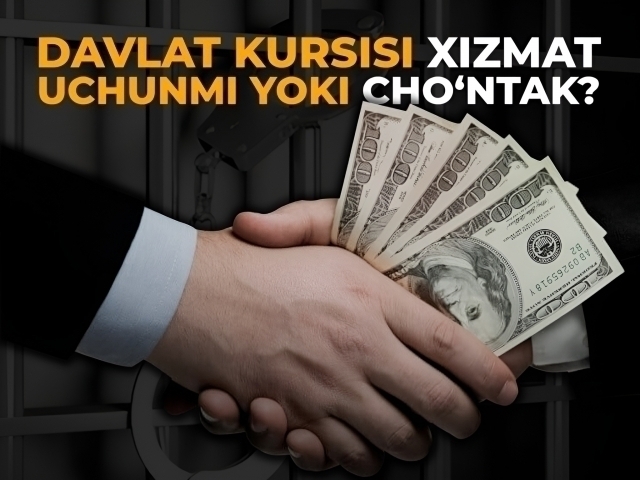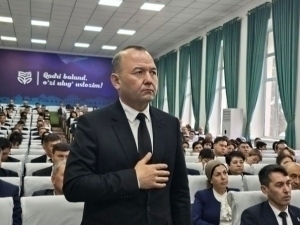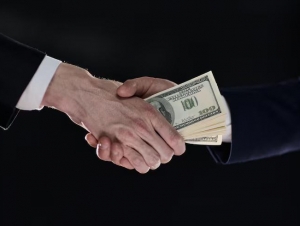Is the state positioning itself for public service or personal gain?
Review
−
11 December 2024 12787 9 minutes
3,575 people—this figure could represent loyal citizens of Uzbekistan who work honestly in their professions. Unfortunately, it is the number of officials who have plundered state and citizen property through corruption.
Throughout history, severe punishments were applied to officials who abused their positions. In Russia, bribe-takers were hanged; in China, they faced mass executions; and in Sweden, judges who accepted bribes had their hands cut off. But what about today? Are there still countries that take such extreme measures? More importantly, what is the most severe punishment for corruption in Uzbekistan? QALAMPIR.UZ explored these questions.
Fight against corruption: Global experience and punishments
Denmark
According to 2023 research, Denmark achieved a corruption level of 0, making it one of the least corrupt countries in the world.
Interestingly, Danish law does not explicitly define “corruption.” However, it includes criminal penalties for offenses such as bribery, fraud, and abuse of office. Under Danish law:
-A person who offers a bribe to a public official faces a fine or imprisonment of up to 3 years.
-A public servant who accepts a bribe can be punished with a fine or up to 6 years in prison.
While Denmark’s penalties may seem relatively moderate, the country’s population has an unwavering stance against corruption. The key factor here is a cultural understanding that corruption is inhumane and unacceptable.
Government agencies, trade unions, and private organizations in Denmark adopt strict “codes of conduct,” ensuring zero tolerance for corruption. For instance, the Confederation of Danish Industry (DI), representing 19,000 enterprises nationwide, prioritizes fighting corruption, bribery, and all forms of abuse of power as one of its core principles.
China
China is recognized as one of the most stringent countries in combating corruption, enforcing severe penalties, including the death penalty, for bribery involving government officials. Similar harsh measures are also applied to drug-related and murder crimes. In recent years, the Chinese Communist Party has taken an uncompromising stance by arresting and executing high-ranking officials found guilty of corruption.
The severity of punishment in China depends on the scale of the corruption:
- Up to 10 years of imprisonment for corruption involving amounts up to 100,000 yuan (approximately 176,907,605 sums);
- 10 years to life imprisonment for corruption involving more than 100,000 yuan;
- Death penalty for corruption exceeding 3 million yuan (approximately 5,307,228,150 sums).
In addition to these penalties, those convicted face confiscation of all titles, services, and property belonging to themselves and their families.
Fan Yifei, a former vice governor of the People's Bank of China, was convicted in October 2023 for illegally amassing more than 386 million yuan ($54.55 million) through his senior positions at the Central Bank and financial institutions like the China Construction Bank. He was sentenced to suspended death, a penalty that involves a reprieve but remains severe.
In 2024, the People's Court sentenced Liu Liangge, former party secretary and chairman of the Bank of China, to death for corruption and illegal lending practices. Liu accepted bribes worth 121 million yuan ($16.8 million), according to the Supreme People's Procuratorate of China.
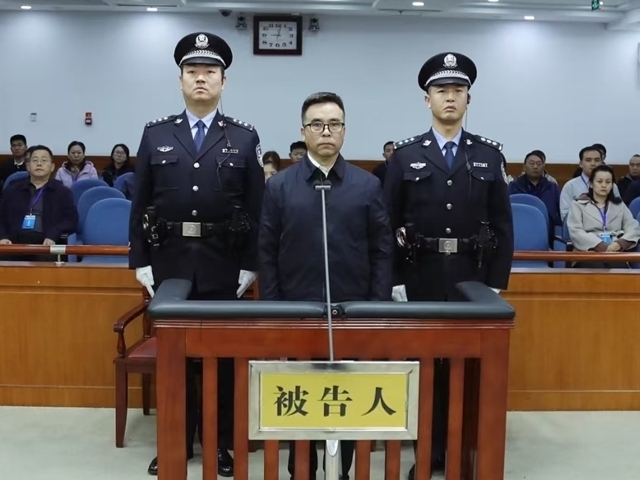
Similarly, Chen Zhixin, former vice chairman of the Standing Committee of the National People's Congress of Guangdong Province, was found guilty of bribery. Between 2012 and 2022, Chen accepted illegal gifts either personally or through intermediaries. Although he admitted his guilt, sought forgiveness, and returned much of the illicit property, the court sentenced him to suspended death as a mitigated punishment.
The Chinese government is also addressing corruption in the cultural sphere. In recent years, anti-corruption television dramas have gained significant popularity. These series often emphasize a key message: state property must never be stolen, under any circumstances.
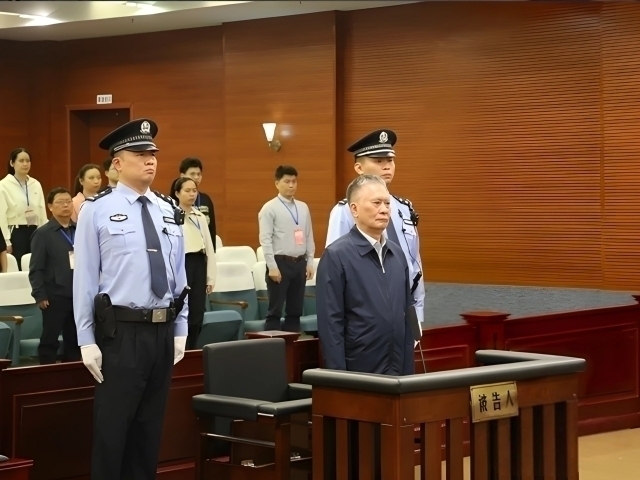
This combination of severe legal penalties, relentless enforcement, and public awareness campaigns underscores China's zero-tolerance stance on corruption, creating a societal environment where corrupt practices are increasingly difficult to sustain.
Iran
Since the Islamic Revolution in 1979, Iran's legal system has applied Sharia-based punishments for corruption involving officials. These punishments can include flogging, amputation of limbs, and even stoning in severe cases.
In 2016, Tehran's chief prosecutor, Saeed Mortazavi, was sentenced to 135 lashes after being found guilty of corruption. His penalties were divided as follows:
70 lashes for "embezzling public funds";
65 lashes for "neglecting duties and wasting public funds."
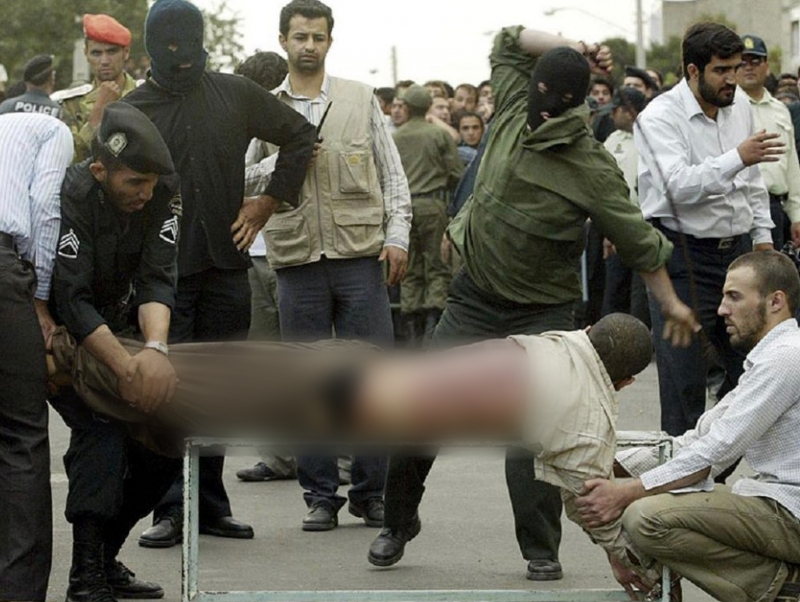
In 2018, Iran witnessed another major corruption scandal. 16 former central bank officials were found guilty of taking $3.5 million in bribes. They were publicly flogged, sentenced to 10 years in prison, and given an additional 74 lashes each.
Saudi Arabia
Saudi Arabia's legal system, like Iran's, is based on Sharia law. However, the kingdom has adopted a more controlled approach, avoiding mass executions while still tackling corruption aggressively.
In 2017, under the leadership of Crown Prince Mohammed bin Salman al-Saud, Saudi Arabia launched a significant anti-corruption campaign. As part of this initiative:
500 high-ranking officials were arrested;
Approximately $107 billion was returned to the state.
The arrested officials were detained in Ritz-Carlton Hotel in Riyadh, which was famously dubbed the "royal prison." While the hotel offered luxurious surroundings, it served as a detention facility for corrupt individuals.
As of February 2019, 50 to 60 officials continued to serve their sentences in this "luxury prison," highlighting the unique approach Saudi Arabia takes in punishing corruption among its elites.
North Korea
In communist countries, punishments for corruption are typically carried out in secrecy, without public display. Those accused are often executed quietly, with the media informed only after the fact.
In North Korea, the frequency of executions related to corruption has risen since Kim Jong-un assumed power. In 2015, he ordered the execution of General Pyong Ying-song, the former head of the North Korean army’s operational department, for being “corrupt” and for failing to follow orders from higher-ranking officers. Around the same time, another 50 mid-to-high-ranking officials were executed for a range of offenses, from theft to secretly watching South Korean films.
Uzbekistan
In 2023, a total of 3,575 officials in Uzbekistan were prosecuted across 3,412 criminal cases.
These officials caused a staggering 1 trillion 12 billion sums in damage to the state budget, of which 847 billion sums were successfully recovered.
At the republican level, 49 officials faced consequences related to their positions, a slight decrease from 2022, when 110 officials were held accountable across the country. At the regional level, the numbers were similar, with 264 officials held accountable in 2022 compared to 267 in 2023. However, at the district and city levels, the statistics showed a rise in accountability, with 2,742 officials punished in 2022 and 3,259 in 2023.
The most common crimes committed by officials in 2023 were embezzlement or the misappropriation of funds. Furthermore, officials surpassed the previous year’s record for bribery. In 2022, 169 officials were involved in bribery, while in 2023, this number rose to 195. Other crimes, including official fraud and negligence, also saw an uptick this year.
While statistics for 2024 have yet to be published, it’s clear from daily news reports that corruption-related cases continue to rise. The most troubling development is that the head of the Anti-Corruption and Comprehensive Control Department, tasked with tackling corruption and apprehending those involved in bribery, was himself caught accepting a bribe. The situation has become even more unsettling, as reports indicate that he ended up harming a deceased person. This raises serious concerns, as it seems corruption cases may continue to set new records. The analogy is striking: when a patient visits a doctor for treatment, but the doctor himself is sick, it’s hard to know whether to feel sympathy for the patient or for the doctor.
Why are corruption cases increasing in Uzbekistan? Why are officials so willing to embezzle state funds without hesitation? Are there any effective legal measures in place to punish corruption?
The penalties for corruption in Uzbekistan are clearly outlined in the legislation, with individuals facing various forms of liability, either criminal or administrative. The following penalties are established for those convicted of corruption-related offenses:
Corruption-related offenses are primarily defined in the Criminal Code of the Republic of Uzbekistan (Chapter 15, Articles 210-214). Such offenses can lead to criminal liability in the following cases:
- Giving and Accepting Bribes: Both individuals and officials can be charged with corruption for either offering or accepting a bribe (money or other valuable items). Penalties for this crime may include imprisonment for 3 to 12 years, along with the confiscation of property.
- Abuse of Office: Officials who misuse their positions to commit illegal acts or embezzle government funds for personal gain are committing corruption. Punishments may include imprisonment, a reduced sentence, or the confiscation of property.
- Organizing Corrupt Activities: Those who organize or facilitate corrupt activities, or allow others to do so, face legal consequences. Punishments may also involve imprisonment and property confiscation.
Types of Punishment
- Imprisonment: The most common penalty for corruption offenses is imprisonment. Sentences range from 3 to 12 years, depending on the severity of the crime.
- Fines: In some cases, those convicted may be fined a significant sum.
- Confiscation of Property: Property obtained through corrupt practices may be seized.
- Deprivation of Positions: Corrupt individuals may be stripped of the right to hold certain positions, with officials often dismissed from their posts.
While Uzbekistan’s legal framework for fighting corruption appears comprehensive and well-structured, its implementation remains a challenge. Although corruption offenders are arrested, there are instances where some individuals, once the public attention fades, are reinstated in their positions. This suggests that, despite the presence of laws, the effectiveness of these measures is often undermined by inconsistent enforcement. Ultimately, only time will tell whether the implementation of these laws will curb the practice of treating the state budget as a "personal pocket."
Iroda Mirvohidova
Live
All